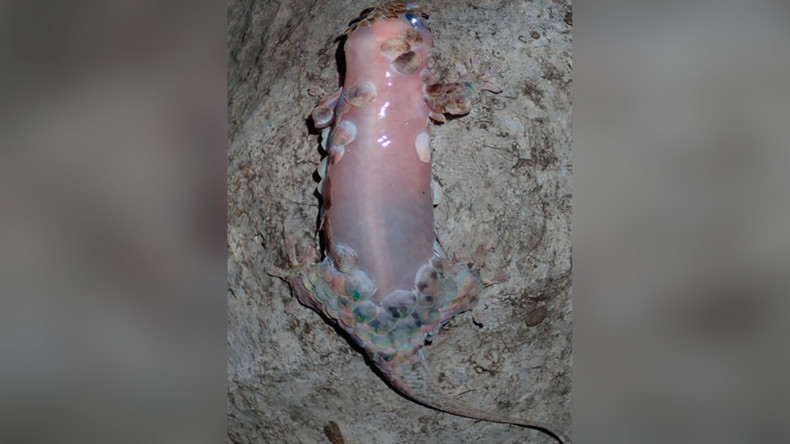
A new species of gecko that has been discovered in Madagascar can shed its skin on demand to disguise itself from predators. The author of the newly-published study on the freakish lizards says it’s nearly impossible to catch one with its skin intact.
The new Gecko has unusually large and thick scales, so much so that its Latin name, Geckolepis megalepis, literally means ‘very large scales.’ Geckolepis megalepis is one of several of so-called ‘fish-scale geckos’ in the genus Geckolepis.
The genus is notable for wearing loosely attached scales that tear away to help them evade predators. G. megalepis is the first species in the genus to have been discovered in 75 years.
G. megalepis is unusual for the apparent ease with which it sheds its skin. “I personally have only ever once managed to catch one of these geckos without losing more than a few scales,” study author Mark Scherz said to National Geographic.
“I was elated! You can look at any museum with these geckos and you see how seldom the [skin] stays intact. It’s almost ridiculous.”
The plate-like scales fall off at the base of the skin and regenerate in a matter of weeks. The lizard does not use the scales for protection, but instead uses them as an effective means of diversion when predators get too close for comfort.
READ MORE: ‘We need to milk spiders’: Zoo asks public to capture deadly arachnids (VIDEO)
“You would think they are somehow protective, but really they are a decoy there for blocking the teeth or claws of whatever wants to eat them… They get stuck in those jaws or claws and allow the gecko to escape naked and alive,” Scherz told the New York Times.
Scherz speculates that after losing their skin, the geckos stay in a sheltered place until they have time to regenerate. “It looks like a fish until you grab it, and then it looks like a naked chicken breast,” he explained.
Researchers actually collected the first specimens of G. megalepis in 2004, but they were mistakenly identified as a similar looking species, G. maculata.
The study was published this week in the journal PeerJ.





